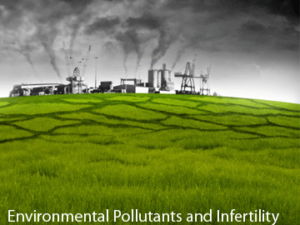
Infertility is causing havoc on a widespread scale, with countless couples across the globe reporting diverse problems. Some issues related to male and female infertility are identifiable and have established lines of treatment. On the other hand, they remain undetected in a large number of cases. This makes them difficult to treat even if the best infertility centers in Delhi are consulted.
Over the years, environmental pollutants have been proved as a major fertility culprit. This is one reason why a large number of couples have to avail IVF treatment in Delhi. There is plenty of scientific evidence to establish the effects of these pollutants on the reproductive abilities of men and women. Thus it is important to know all about these pollutants and the way these hamper fertility so that precautions can be taken against them.
How pollutants impact fertility in men and women?
Prolonged exposure to environmental pollutants and toxins has a negative impact on human health. IVF centre in Delhi say that both sexes experience a decline in their reproductive capacities because of these pollutants. Exposure to these materials has an extremely harmful influence on the male sperms. All the three parameters of sperm count, motility and morphology could fall prey to the toxic impact of the pollutants. In women, continuous exposure can result in ovulation issues and irregular menstruation, which can cause acute female infertility issues. Besides interfering with conception, these pollutants can also elevate the risk of pregnancy complications such as miscarriage and fetal birth defects.
Different types of environmental pollutants affect human fertility in different ways. Some are more harmful as compared to others, though precaution is needed for them all. In fact, precaution is suggested as the best alternative for people seeking infertility treatment in Delhi. Let’s know more about the ill-effects of various kinds of pollutants on fertility:
Industrial Chemicals: People who are exposed to industrial chemicals for a prolonged time period are susceptible to a variety of fertility-related complications. These industrial chemicals include benzene, xylene and toluene. Similarly, chemical based fertilizers, insecticides, herbicides, paints and organic solvents pose threat to fertility of men as well as women. People working in places where these chemicals are synthesized face their ill-effects as an occupational hazard. Men, in particular, are at high risk of developing semen related problems. A large number of males approach infertility centers in Delhi with this form of sperm damage.
Air Pollutants: Air pollution is another major threat to human fertility. In fact, it is one of the most prevalent causes for couples seeking infertility treatment in Delhi. Continuous exposure to pollution caused by traffic, industrial gases and domestic expulsion results in infertility in the urban areas. The polluted air is high in toxins such as carbon monoxide, nitrogen oxide, sulfur, lead, fluorides, fine particulate matter, etc. These gases not only affect sperm count but also cause DNA damage to the sperms. Pregnancies conceived with such sperms are likely to be at high risk of miscarriage and fetal abnormalities.
Heavy Metals: Another environmental culprit that can cause male and female infertility is heavy metals. Exposure to metals such as cadmium, chromium, lead and mercury is an occupational hazard. Infertility centres in Delhi say that these metals can alter the semen status and lead to reduction in male fertility. Sperms exposed to heavy metals like lead lose their ability to bind the egg and fertilize it. Mercury intoxication is another serious condition that can cause serious male infertility issues such as azoospermia.
Radiation: Another reason why couples have to go for infertility treatment in Delhi is exposure to radiation. Environmental pollution is not confined to toxic chemicals and substances but radiation too. Radiation damage can be caused by diverse factors such as occupational exposure, X-Rays, microwave radiation and cell phone radiation. Men who are exposed to radiation over a period of time can come across permanent sperm production problems. Women are not spared too as exposure to radiation can damage their ovaries and affect the regularity of ovulation cycle too.
Lifestyle Generated Pollutants: Certain lifestyle generated pollutants also have a detrimental impact on fertility. These include consumption of polluted food and water, excess alcohol consumption and smoking. Cigarette smoking, in particular, has been proved to be extremely harmful for male and female fertility. Infertility centers in Delhi gives equal emphasis to avoiding stress. It acts a psychological pollutant, which is as harmful as physical ones.
Protecting oneself from environmental pollutants is not easy as they are found almost everywhere, at home, at work and outdoors too. Avoiding them completely is practically impossible. However, couples planning conception or those struggling with infertility need to think hard. Certain lifestyle chances can make all the difference. They can improve their chances by looking for alternate occupations that do not pose danger to their fertility. Consulting an infertility specialist can be of help to understand the impact of these pollutants on their fertility and find ways to avoid them.
Gaudium IVF is the top infertility center in India where patients are offered extensive reproductive techniques as well as gynecological solutions for diverse infertility and reproductive issues. The clinic also extends valuable counseling and support to its patients.
Visit here for free second opinion from Dr Manika Khanna, the leading infertility specialist in India.



